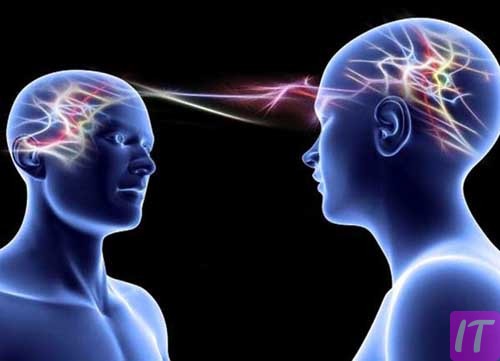Can twins really communicate telepathically? This question has intrigued both scientists and the general public alike for ages. Anecdotal accounts from twins claiming to share thoughts, feelings, or even physical sensations over distances add fuel to the belief in such psychic connections.
Historically, twins have been subjects in numerous studies aimed at unraveling the mysteries of human connection and cognition. One notable case involved synchronized brainwave patterns, providing a statistical anomaly deserving of further exploration. While there is no concrete evidence proving twin telepathy, these instances continue to captivate the scientific community.

Exploring the Concept of Twin Telepathy
The idea of twin telepathy suggests that twins can communicate or share feelings without using the five senses. This has been a topic of intrigue for many years. Some twins claim they can sense each other’s emotions or even physical pain. These accounts often make people wonder whether telepathy can be real or if it’s just a coincidence. It’s a captivating subject for both scientists and the general public.
Throughout history, various studies have tried to explore twin telepathy. Scientists have conducted experiments where twins are separated and then exposed to different stimuli. Sometimes, they notice reactions in one twin when the other experiences something unusual. However, these results are often inconclusive. The mystery continues to elude definitive scientific proof.
Psychologists often provide a different perspective on twin telepathy. They suggest that the strong bond between twins can create a unique empathic connection. This bond may allow them to pick up on subtle clues that others might miss. This connection could explain why twins seem to share thoughts or emotions. It’s a more down-to-earth explanation compared to supernatural theories.
The compelling nature of twin telepathy has led to a lot of interest and debate. While there are many stories and some scientific studies, conclusive evidence is still lacking. People continue to be fascinated by the possibility of mental connections between twins. Whether it’s real or imagined, twin telepathy adds to the unique and special bond that twins share. This intriguing topic continues to pique curiosity and prompt further research.
Defining Telepathy and its Potential Existence in Twins
Telepathy is often defined as the ability to transmit thoughts or feelings between individuals without using the five known senses. It’s a concept rooted in science fiction and paranormal studies. Many scientists are skeptical about telepathy’s existence due to the lack of concrete evidence. However, the fascination with this idea persists. Some believe that twins might be the best subjects to study telepathy due to their unique bond.
This unique connection between twins has led many to wonder if telepathy could be more likely to occur between them. Anecdotal stories from twins suggest they sometimes know what the other is thinking or feeling. These experiences often happen without any obvious form of communication. Because twins share such an intimate bond from birth, it seems logical to test telepathy in this group. Still, scientific results have been mixed.
Scientific experiments have been conducted to explore the idea of twin telepathy. These experiments sometimes involved twins being separated and exposed to different stimuli. Researchers then observed to see if one twin could sense what was happening to the other. Though some studies showed slight connections, the findings were not definitive enough for scientific acceptance. As a result, skepticism remains strong among the scientific community.
Despite the unclear scientific results, the potential for twin telepathy continues to intrigue researchers and the public. Emotional and psychological bonds between twins are undeniable. These deep connections could explain why twins appear to be more in tune with each other. Whether telepathy exists or not, the unique connection between twins remains a fascinating topic of study. This ongoing debate keeps the concept alive in both scientific and popular discussions.
Scientific Investigations into Twin Telepathy
Scientists have long been interested in the idea of twin telepathy. Several studies have been conducted to test this phenomenon under controlled conditions. In some experiments, twins are placed in separate rooms and exposed to different stimuli. Researchers then observe whether one twin shows any reaction to what the other twin experiences. However, these studies often yield inconclusive results.
One famous study involved monitoring the brainwaves of twins. Researchers aimed to see if any synchronization occurred when one twin experienced a specific stimulus. Surprisingly, some twins did show synchronized brainwave patterns, even when far apart. These findings were intriguing but not definitive. The experiments did not consistently produce the same results, leading scientists to remain cautious.
Another approach involves using telepathy cards, where one twin views a card and tries to mentally project the image to the other twin. The receiving twin then guesses the card’s image, often with varying degrees of accuracy. In many cases, the success rate is no higher than chance. Though some results were above average, they were not enough to be considered proof of telepathy.
While scientific investigations into twin telepathy are fascinating, they face numerous challenges. The unpredictability and inconsistency of the results make it hard to draw definitive conclusions. Despite these hurdles, the topic remains a popular subject for exploration. The unique bond between twins continues to provide a rich field for scientific curiosity and study.
Anecdotal Evidence Supporting Twin Telepathy
Anecdotal evidence consists of individual stories or personal accounts. Many twins report experiencing moments of telepathy in their lives. These stories often describe situations where one twin feels the other’s emotions or knows what they are thinking. For example, some twins claim to feel pain when their sibling is hurt, even when they are miles apart. Such experiences lead many to believe in the possibility of twin telepathy.
Numerous accounts involve shared dreams or simultaneous thoughts. Twins often say they dream about the same events or people without discussing them beforehand. Some twins even finish each other’s sentences or say the same thing at the same time. These behaviors suggest a deep, almost telepathic connection. Though intriguing, these claims remain anecdotal and lack scientific proof.
In emergency situations, twin telepathy stories become even more compelling. There are instances where one twin senses the other is in danger. This sense prompts them to take action, leading to real-life rescues. Such dramatic stories capture public attention but also raise questions about their validity. While compelling, these accounts are difficult to verify scientifically.
List of common anecdotal twin telepathy claims:
- Feeling each other’s physical pain.
- Knowing the other’s thoughts or emotions.
- Having shared dreams.
- Finishing each other’s sentences.
- Sensing danger to the other twin.
While anecdotal evidence supports the idea of twin telepathy, it is not enough to establish it as a fact. These stories are compelling and often touching, offering a glimpse into the unique bond twins share. However, without concrete scientific support, these accounts remain part of an ongoing mystery. The fascination with twin telepathy continues, keeping the subject alive in both popular culture and scientific inquiry.
Psychological Perspectives on Twin Telepathy
Psychologists offer unique insights into the idea of twin telepathy. They often argue that a strong emotional bond can create an empathic connection between twins. This connection allows them to understand and feel each other’s emotions deeply. The sense of knowing what the other twin feels might be more about empathy than telepathy. This kind of bond can sometimes seem almost magical.
Another psychological perspective focuses on shared experiences and upbringing. Twins often grow up in the same environment and undergo similar experiences. This shared background makes them more likely to think and react similarly in various situations. Over time, these similarities might make it appear as if they are reading each other’s minds. This is not telepathy but rather a result of their shared life experiences.
Cognitive psychologists also study how the brain processes information. They believe that twins are exceptionally good at picking up subtle cues from each other. These cues could be facial expressions, body language, or even tone of voice. Because twins know each other so well, they can interpret these signals quickly. This heightened awareness might be mistaken for telepathy.
Some psychologists argue that the idea of twin telepathy might be influenced by confirmation bias. People tend to remember instances when telepathic communication seemed to occur but forget the countless times it did not happen. This selective memory can create the illusion that twin telepathy is real. Our brains are wired to see patterns, even where none exist.
List of psychological explanations for twin telepathy:
- Empathic connections due to strong emotional bonds.
- Shared experiences and similar environments.
- Heightened ability to read subtle cues.
- Confirmation bias and selective memory.
While these psychological perspectives provide more grounded explanations, the fascination with twin telepathy remains. People are naturally curious about the deep connections that twins share. The mystery continues to invite both scientific study and public interest. The unique bond between twins is an enduring topic of fascination and research.
Debunking Myths Around Twin Telepathy
Many myths surround the concept of twin telepathy, making it seem more mysterious than it is. One common myth is that twins can read each other’s minds from great distances. This idea often pops up in movies and books, adding to the misconceptions. In reality, no scientific evidence supports the idea of mind-reading over long distances. These tales are captivating, but they lack basis in scientific fact.
Another myth suggests that twin telepathy is a constant and unbreakable bond. People imagine that twins can always sense each other’s thoughts and feelings. However, even the closest twins do not experience this phenomenon consistently. The connection they share is special, but it is not supernatural. They may be in tune with each other but not in a magical way.
Some people believe that twin telepathy can be scientifically proven with the right experiments. While many studies have tried to explore this idea, results remain inconclusive. No research has definitively proven that twins can communicate telepathically. Often, what seems like telepathy can be explained by other factors like environmental cues and shared experiences. Science has yet to find credible proof of telepathic communication.
There are also myths that twin telepathy is more likely in identical twins than fraternal twins. This assumption is based on the idea that identical twins share more biological similarities. However, anecdotal evidence does not show a clear distinction between the two types of twins. Both identical and fraternal twins report similar experiences of strong connections.
List of myths about twin telepathy:
- Mind-reading over long distances.
- Constant, unbreakable telepathic bond.
- Scientific proof is just around the corner.
- Identical twins are more likely to experience telepathy.
Debunking these myths helps to clarify what twin telepathy is and isn’t. While the idea is fascinating, it’s crucial to understand the difference between fictional portrayals and real-life experiences. Acknowledging the uniqueness of the twin bond without over-romanticizing it benefits both scientific understanding and public perception. It grounds our views in what can be observed and verified.

Frequently Asked Questions
Delving into the mysterious connection between twins, many wonder about the extent of their unique bond. Here are some commonly asked questions regarding twin telepathy and related phenomena.
1. How do scientists study twin telepathy?
Scientists typically separate twins during experiments to see if one can sense the other’s experiences remotely. These studies often involve showing stimuli to one twin and observing any reactions in the other. Researchers then analyze whether these reactions are more than chance occurrences. Despite numerous studies, results have generally been inconclusive or inconsistent.
Several controlled experiments also use technology to monitor brain activity in twins. For example, EEG scans track brainwaves to check for synchronization when one twin is exposed to specific stimuli. Although some intriguing patterns have been found, they lack consistency across larger sample sizes. Therefore, conclusive scientific evidence remains elusive as of now.
2. What psychological factors might explain perceived telepathy in twins?
Twins often share a strong emotional bond that allows for profound empathy and understanding. This bond can make them highly sensitive to each other’s feelings and needs even without verbal communication. It’s likely that these empathic connections contribute significantly to what people perceive as telepathy.
Additionally, twins usually grow up in similar environments and have countless shared experiences. These commonalities enable them to anticipate each other’s thoughts and behaviors with greater accuracy than non-twins could. This heightened awareness creates an illusion of mental communication but may actually stem from deep familiarity rather than any supernatural ability.
3. Can technology help prove or disprove twin telepathy?
Modern technology offers sophisticated tools such as EEG machines and functional MRI scanners to study twin behavior more closely. These devices can detect subtle changes in brain activity and help scientists draw conclusions about neural synchronization between twins during various tasks or stimuli exposure.
, these technologies still face limitations like statistical anomalies and difficulty in duplicating results consistently across different groups of participants.Even though they provide valuable data points,the current technological advancements fall short of decisively confirming or debunking twin telepathic capabilities.Tech,nithers continued evolutionofer new research opportunities aimedrmunedighting light on this enigmning tinsly fascinating subject.“telepathy almost all their space.”
Conclusion
While the idea of twin telepathy captures public imagination, the scientific community remains cautious. Numerous studies have explored this phenomenon but have not provided conclusive evidence. Emotional bonds and shared experiences likely play significant roles in perceived telepathic connections.
The allure of twin telepathy continues to inspire both scientific inquiry and anecdotal accounts. Although proof remains elusive, the topic invites ongoing research and discussion. The unique connection between twins, whether explained by science or still a mystery, remains a fascinating subject for both experts and the general public.







